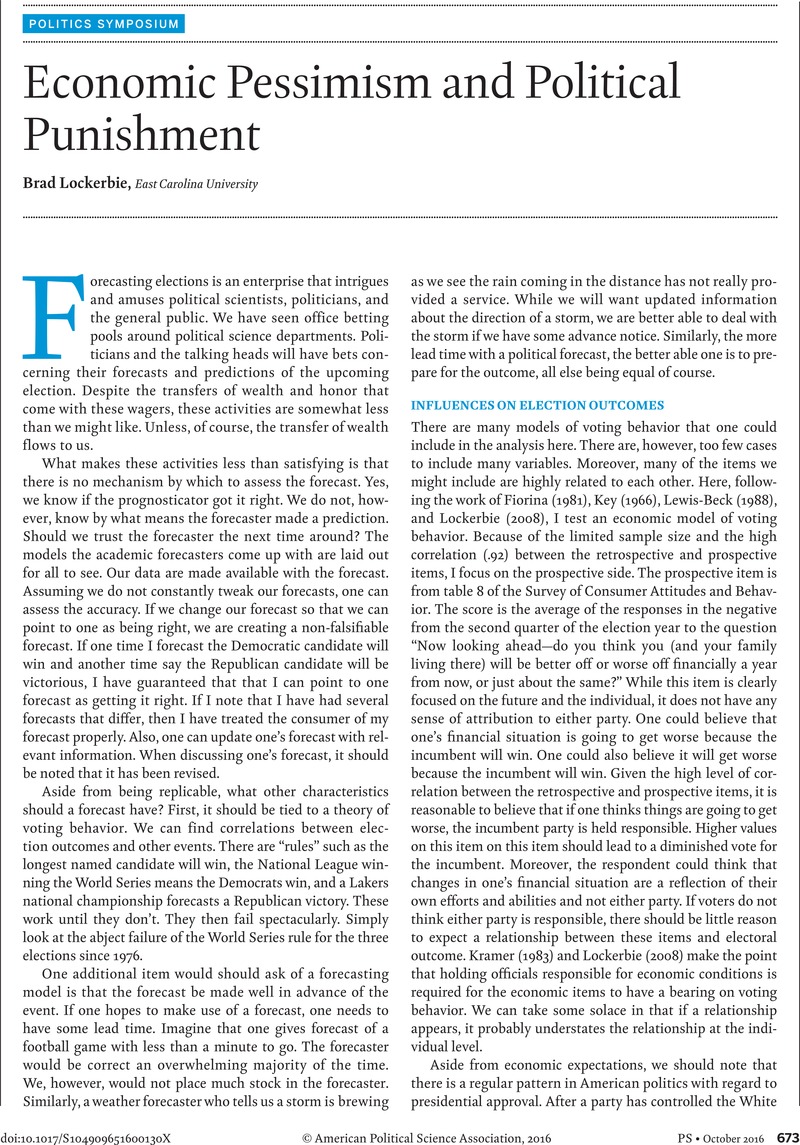Crossref Citations
This article has been cited by the following publications. This list is generated based on data provided by Crossref.
Lewis-Beck, Michael S.
and
Tien, Charles
2018.
Candidates and campaigns: How they alter election forecasts.
Electoral Studies,
Vol. 54,
Issue. ,
p.
303.



